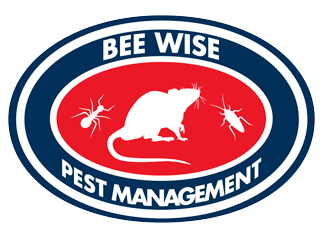An Eco-Friendly Guide to Preventing Pests in Your Garden
At Bee Wise Pest Management, we believe that maintaining a pest-free outdoor space is not only important for the health and well-being of your family and pets, but also for protecting the environment. The good news is that there are natural and sustainable techniques you can implement to keep insects and rodents away from your outdoor areas without resorting to harsh chemicals. Below, we share an eco-friendly and practical guide to caring for your garden and outdoors responsibly and effectively. Promoting Biodiversity and Repellent Plants One of the keys to keeping pests away is promoting a balanced ecosystem in your garden. Planting species that act as natural repellents, such as lavender, mint, marigold, basil, and rosemary, can deter unwanted insects. Additionally, these plants attract beneficial insects, such as bees and butterflies, which help pollinate and maintain ecological balance. Using Physical Barriers and Natural Traps Place physical barriers, such as fine mesh or landscape fabric, in vulnerable areas to prevent insects and rodents from entering. You can also use traps made with natural ingredients, such as neem oil traps or vinegar traps with citrus peels, which capture or repel pests without harming other species. Maintain Cleanliness and Eliminate Harbors Regular cleaning of your garden and outdoors is essential. Remove fallen leaves, woodpiles, debris, and trash that can provide harborage for rodents and other insects. Also, avoid stagnant water in flowerpots, watering troughs, or puddles, as these are ideal breeding grounds for mosquitoes. Using Natural Repellents and Essential Oils Essential oils such as eucalyptus, citronella, neem, and tea tree have repellent properties. You can prepare homemade sprays by diluting a few drops in water and spraying them on key areas, such as fences, doors, and windows. These repellents are safe for people, pets, and the environment. Moisture Control and Structure Repair Excessive moisture attracts rodents and certain insects. Ensure drainage systems are working properly and repair any leaks or damage to outdoor structures. Keeping areas dry significantly reduces the likelihood of infestation. Encourage Natural Enemies Attracting and retaining beneficial animals, such as birds, bats, and ladybugs, helps control pests naturally. Installing feeders, nest boxes, and waterers can attract these ecological allies to your garden. Plant Rotation and Management Avoid overgrowing the same species year after year, as this can facilitate the proliferation of specific pests. Rotating crops and plants helps reduce the incidence of insects and diseases. Preventing pests in your outdoor spaces in an ecologically friendly way requires a comprehensive and nature-friendly approach. By implementing these sustainable techniques, you'll be protecting your home and your surroundings, promoting a healthy garden free of harsh chemicals. At Bee Wise Pest Management, we're committed to eco-friendly practices and offer professional advice to keep your outdoor spaces safe and balanced. Contact us and find out how we can help you care for your garden responsibly! For more information and specialized services, visit our website: https://beewisepestmanagement.com/
Read More